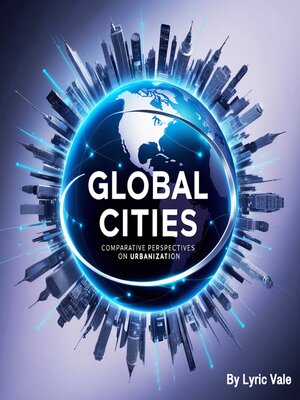
Sign up to save your library
With an OverDrive account, you can save your favorite libraries for at-a-glance information about availability. Find out more about OverDrive accounts.
Find this title in Libby, the library reading app by OverDrive.



Search for a digital library with this title
Title found at these libraries:
| Library Name | Distance |
|---|---|
| Loading... |
Global urbanization is one of the defining phenomena of the 21st century, reshaping the landscape of human society in profound and often unpredictable ways. Urban areas have become epicenters of economic, cultural, and technological growth, drawing millions of people in search of better opportunities. As more than half of the world's population now resides in cities, the rapid expansion of urban areas raises both exciting prospects and complex challenges. This shift is not just about the physical growth of cities, but also the transformation of how societies function, how people live, and how global systems interact with local realities.
At its core, global urbanization is driven by a multitude of factors. The movement of people from rural to urban areas, spurred by the promise of economic opportunity and improved living standards, has accelerated with globalization. As the world becomes more interconnected, cities are increasingly positioned as nodes in a vast, global network. These cities are not isolated entities but are linked by flows of capital, information, and labor, contributing to the spread of economic, cultural, and technological trends. This interconnectedness means that changes in one city can have ripple effects worldwide, making the study of urbanization crucial for understanding the broader dynamics of global society.
However, urbanization is not a uniform process. While some cities grow through industrialization and technological advancements, others are expanding due to rapid population growth driven by migration and high birth rates. The result is a global urban landscape marked by diversity in size, scale, economic power, and social complexity. While cities like New York, London, and Tokyo have long been at the forefront of global urbanization, emerging cities in Africa, Asia, and Latin America are now gaining prominence.







